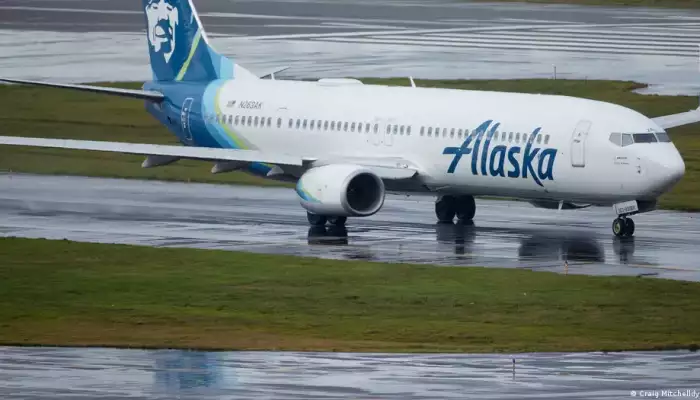
The US Federal Aviation Administration (FAA) has increased pressure on plane maker Boeing, banning further production of its best-selling 737 MAX narrowbody planes.
However, the FAA did agree to allow the 737 MAX 9 — grounded after a mid-air blowout — to start flying again after inspections.
What the air regulator said
FAA head Mike Whitaker said his agency's review of a fuselage blowout on an Alaska Airlines Boeing jet had given him the confidence to allow the planes to fly again.
However, Whitaker said the FAA would not agree to any request to expand production of Max planes until Boeing addressed quality-control concerns.
"This won't be back to business as usual for Boeing," Whitaker said.
The production brake only applies to the MAX, which currently has two models, the 8 and the 9. The aviation giant builds about 30 of the planes each month, although it has been seeking to raise production.
What the plane maker said
Boeing said it would work with partners to get the grounded planes back in the air.
"We will continue to cooperate fully and transparently with the FAA and follow their direction as we take action to strengthen safety and quality at Boeing," the company said. "We will also work closely with our airline customers as they complete the required inspection procedures to safely return their 737-9 airplanes to service."
A fuselage panel known as a door plug blew off the Alaska Airlines MAX 9 as it was flying 16,000 feet (about 4,900 metres) above Oregon on January 5, leaving a hole in the side of the plane.
The pilots were able to return safely to Portland, from where the plane had taken off to fly to southern California.
The FAA grounded most MAX 9s the next day, with Alaska and United Airlines — the only US carriers with MAX 9s — canceling hundreds of flights since then.
Earlier this week, the CEOs of both airlines voiced their frustration with Boeing.
Airlines will now be required to conduct "detailed visual inspections" of door plugs and other components, make adjustments, and fix any damage before putting the planes back into service.
Global authorities grounded all MAX planes in 2019 after 346 people died in crashes in Ethiopia and Indonesia. Those accidents were linked to poor cockpit software.
That crisis dented Boeing's 50% share of the passenger jet market, with the company finishing 2023 in second place behind its European rival Airbus for the fifth year running.